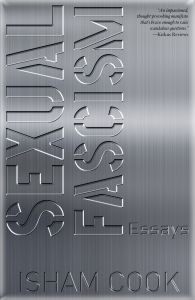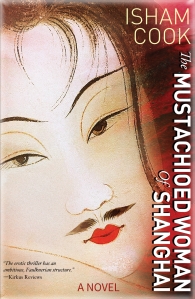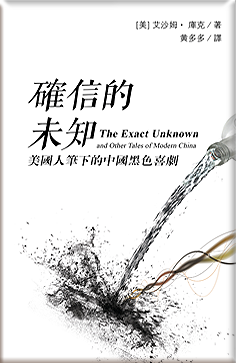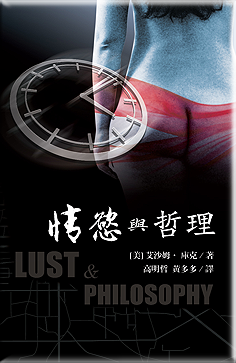 If there was ever a story with an extreme cultural divide to navigate, it’s A Concise Chinese-English Dictionary for Lovers by Xiaolu Guo (Anchor, 2008). A young woman from rural China is plopped down in London for a year on a study visa with little English ability or understanding of Western culture. Soon an Englishman she meets in a cinema seduces her and she moves in with him. He’s not your typical British chap, if there is such a thing, but an unpindownable bisexual eccentric and failed sculptor with leftist antiestablishment leanings and a Luddite distaste for the trappings of modern society. He’s also twenty years older than her but handsome and fit enough that she falls for him—her first significant relationship with a man. However, his aloofness and scorn for traditional monogamous relationships perplexes and tortures her, and she only makes things worse by smothering him with her love and attention. He avoids her and disappears for days at a time, leaving her abandoned and distraught in his flat. Then, he sends her off on a trip to the Continent alone for several months, for the purpose of cultivating her own sense of independence. Reluctant at first, she nonetheless succeeds in extracting enjoyment out of her picaresque adventures, including spontaneous sex with strangers. These chapters become a turning point and centerpiece of this Bildungsroman novel, where naive country girl emerges as liberated female.
If there was ever a story with an extreme cultural divide to navigate, it’s A Concise Chinese-English Dictionary for Lovers by Xiaolu Guo (Anchor, 2008). A young woman from rural China is plopped down in London for a year on a study visa with little English ability or understanding of Western culture. Soon an Englishman she meets in a cinema seduces her and she moves in with him. He’s not your typical British chap, if there is such a thing, but an unpindownable bisexual eccentric and failed sculptor with leftist antiestablishment leanings and a Luddite distaste for the trappings of modern society. He’s also twenty years older than her but handsome and fit enough that she falls for him—her first significant relationship with a man. However, his aloofness and scorn for traditional monogamous relationships perplexes and tortures her, and she only makes things worse by smothering him with her love and attention. He avoids her and disappears for days at a time, leaving her abandoned and distraught in his flat. Then, he sends her off on a trip to the Continent alone for several months, for the purpose of cultivating her own sense of independence. Reluctant at first, she nonetheless succeeds in extracting enjoyment out of her picaresque adventures, including spontaneous sex with strangers. These chapters become a turning point and centerpiece of this Bildungsroman novel, where naive country girl emerges as liberated female.
The book’s masterstroke is its odd, captivating style. Guo made the risky but astute decision not to attempt a flawless performance in English but to exploit her imperfect control of the language as a vehicle for depicting her personal transformation. The early chapters employ a charmingly entertaining broken English fashioned out of Chinese grammar: “I standing in most longly and slowly queue with all aliens waiting for visa checking. I feel little criminal but I doing nothing wrong so far.” Or, “Even when I see a beggar sleeping in a sleep bag I am scared. Eyes wide open in darkness staring at me like angry cat. What he doing here? I am taught everybody in West has social security and medical insurance, so, why he needs begging?” By the later chapters, her English has improved somewhat, and her expanding vocabulary reveals the correspondence between linguistic and real-world knowledge: the almost claustrophobic relationship between language and awareness, the recognition, captured in the book’s title, that words are as important as money, food and shelter for surviving in an unfamiliar society.
The strength of the book—its effective fusing of linguistic texture and real-world experience—is also its weakness. Just as the narrator is stuck in the narrow world of her little red Concise-Chinese English Dictionary (I carried around the same dictionary in my early years in China), without which the world around her would remain incomprehensible, she is also stuck in the fraught space between her marital expectations with an enigmatic lout and his refusal to rescue her with a marriage visa and a happy ending. Many details of the narrative are all too true to life, and I assume the novel is autobiographical. This is where Guo falters, as it’s never clear where fiction and artistic objectivity fall off into personal grievance. We never learn the man’s name; he is referred to throughout in the second person as “You.” I’m not sure what the author intended by this device, but to me it lends the book the quality of a long, desperate love letter, as if it had been written not for a wider audience but him alone. The book’s comic thrust gives way in the end to a humorless despair after the author’s visa application is rejected and she is forced to return to China. Her evident failure to comprehend the significance of the previous year and achieve psychological closure leaves us hanging as well.

The back-cover blurb of Xu Xi’s That Man in our Lives (C&R Press, 2016) closes with a big mouthful:
Originally inspired by John Adams’ [1987 opera] Nixon in China, a large cast of characters traverse the globe in search of…missing protagonist [“Gordie” Ashberry], a Gatsby-ish figure with Chinese characteristics. That Man in Our Lives is Xu’s metafictional answer to the late 18th century Chinese classic novel, Cao Xueqin’s Dreams of Red Chambers.
Now, no Great American Novel can approach the importance that Dreams of Red Chambers has for China. The comparison to that novel alone, ten times its size and with its own cast of 400 characters, is daring enough, though with over forty characters spread between the U.S. and Hong Kong and a time frame going back half a century, Xu’s effort intends at least to be proportionately ambitious. The opening sentence certainly lives up to the term “metafictional”: “Let’s say it’s the 21st century (2005 or maybe 2006) and we’re partaking of tea and sympathy when Bino says I’m in love with Gordie. What Bino Realuyo actually says to me is this: girl, you’re too much in love with Gordie.” The ambiguities are worked relentlessly. We never meet Bino, and though our first-person narrator claims to have had a relationship Gordie, she provides few hints about either the relationship or herself, apart from being a Hong Konger and Cantonese speaker (we do by the end have a strong suspicion of her role in the story). Gordon Marc Ashberry has a number of assets—exceedingly handsome and cultured (fluent in Chinese and jazz), gracious and magnetic, on top of which he happens to be a billionaire. His flaws only seem to heighten his appeal. Never having had to work in his life, he mismanages his sole business venture and is swindled of many millions. In the late 1990s he mysteriously decides to give away all forty-three million dollars of his remaining wealth to charity, and grows distant toward everyone close to him. And then just as enigmatically, in 2003, he stages his own disappearance. As if in imitation of his bizarre act, the elusive unnamed narrator removes herself from most of the heavily layered narrative as well, leaving a third-person narrator of questionable reliability, with the aid of diary entries and manuscript fragments, to unravel the complex tangle of relationships involving all the American and Chinese women bedded by “that man.”
As with many an experimental novel, the narrative does not proceed in chronological order. That’s not necessarily a problem, as there is a long tradition of storytelling in nonlinear mode, going back to the in medias res structure of Homer’s Odyssey. A sophisticated example of the “onion” style of narrative, which peels off layer by disturbing layer, spiraling inward to a traumatic core or primal scene, is Ford Madox Ford’s masterpiece The Good Soldier (John Lane, 1915). In the deceptively bland opening of that novel, the American narrator and his wife become acquainted with a blue-blooded English family, the Ashburnhams, on holiday in their luxury resort on the Continent. Nothing could seem more banal than these two unruffled couples as they wile away the hours. But the surface of things is only a protective shell the narrator adopts in retrospect, as he works out the most graceful means of unfolding the disturbing events succeeding upon their deepening relationship with the Ashburnhams. Here the nonlinear narrative strategy operates through a calculated, sustained and dramatic series of shocks. Xu’s novel unfolds in an analogous manner, working backwards bit by bit and lobbing perfectly timed grenades of revelation. Then, finally, the irreducible kernel of mystery: what motivates Ashberry’s monumentally narcissistic act, this sad loner’s calculated disappearance, after so great an altruistic act of charity? And what motivates the obsession of so many of the characters, male and female alike, for the man himself? It’s never answered, but there are enough scattered clues to provide ripe material for interpretation, which I’ll leave to the reader.
The resemblance of the protagonists’ surnames in the respective novels, Ashberry and Ashburnham, may not be coincidental; if the homage is conscious, I wonder if Xu intended to publish her novel exactly 100 years after Ford’s, and only a delay caused it to come out a year too late. On the other hand, there is some inkling (in the Acknowledgements page) that her novel is based on “research” and therefore on real people, partially fictionalized or not; the verso page lacks the standard disclaimer denying any existing relationship between the characters and actually living persons or events. More intriguingly, Xu’s appears to be part of a much larger project, a series of novels, of which That Man in Our Lives is the fifth, with overlapping characters and an autobiographical underpinning. Her Chinese Walls (Typhoon Media, 1994) recounts American GIs trolling prostitutes in 1960s Hong Kong, where Xu grew up. Hong Kong Rose (Typhoon Media, 1997) tells the story of Rose Kho, who leaves Hong Kong for New York in 1987 and becomes involved with a man named Gordie; the same Rose Kho and father Jimmy Kho have minor roles to play in That Man in Our Lives. In The Unwalled City (Typhoon Media, 2001), a cast of local women and New York expats, including one named Gail Szeto, navigate interracial relationships in 1997 Hong Kong, the year of the turnover to Chinese control. Habit of a Foreign Sky (Typhoon Media, 2014) picks up where The Unwalled City leaves off, with Gail Szeto’s subsequent involvement in a web of relationships in New York, Hong Kong and Shanghai. In That Man in Our Lives, Gail Szeto is none other than Gordon Ashberry’s bastard “half sister” from an encounter he had with a Chinese prostitute. If these five interconnected novels can thus be conceived of as part of a larger story, it is one indeed taking on the sweep of Cao Xueqin’s Dreams of Red Chambers. Xu is working on the largest of canvasses, that of East-West cross-cultural relationships, or in the contemporary literary cant, discourses of global “hybridity.” But I will refrain from assessing the artistic caliber of her entire project, at least until I have read all five novels.
That Man in Our Lives exemplifies, almost to the point of parody, the postmodernist literary novel. Some may find it unreadable or pretentious and hurl it against the wall. I found it stylish and highly engaging, but it’s the type of book that needs a second read to fit the pieces of the puzzle together. I may give it a third read, with a spreadsheet to work out the exact sequence of events.

The Strike, by Harvey Thomlinson (Lucid Play, 2018), translator of Murong Xuecun’s Leave Me Alone: A Novel of Chengdu (Make-Do, 2017), presents a very different type of experimental novel to Xu’s. In Cubist painting and sculpture, an object is splayed, as if jumbled up or turned inside out. The impulse behind this is not just to display the object from multiple perspectives, as when we see a woman’s face on the side of her head in a Picasso painting, but to display the idea of the object, how it appears at once in the mind’s eye, inclusive of both its physical properties and the associations and emotions attached to it. Since the thought of an apple, for instance, includes the sensation of eating it, a Cubist sculpture of an apple may show it as partially chewed or torn apart (Picasso did sculpt such an apple). Thomlinson boldly attempts to do with language what the Cubists did with images and things. Where the Cubists fractured the laws of perspective, he fractures the rules of grammar, collapsing or mashing together descriptions and impressions so that they appear in the mind’s eye as fused concepts.
One technique he employs to this end is to merge two clauses so that the complement of the first (the woman Meizhu) becomes the subject of the second:
She was Meizhu had been seething mad inside ever since catching Fat Pang with those young women he kept bragging about helping the strikers.
Or take the following sentence:
Slowly screaming wheels they climbed the sky stretched for miles across the afternoon full of small thickets and hills.
This is otherwise known as a run-on sentence, when one independent clause is joined to another without punctuation. This type of grammatical error, which has long bedeviled freshmen composition students (along with the old comma splice), Thomlinson exploits at great length for the curious effects it produces. In this case, the mind wants to read “the sky” as the object of “they climbed,” until it’s forced to read “the sky” as the subject of “stretched for miles.” So many sentences in the novel use run-ons to violate accepted grammar that I wonder if it was Thomlinson’s underhanded revenge for years of misery as a writing teacher. He even has a term for it: “existential syntax,” counterposed to “conventional syntax which shapes the way we perceive reality by encoding conceptual relations, particularly temporal relations, or causality” (“Author Interview,” The Strike).
It is undoubtedly an intriguing technique. We assume the prepositional phrase of the following sentence modifies the first clause, to produce the surrealistic image of Little Xu herself hanging from the ceiling by elastic bands while calling on her cellphone, when it turns out to modify the second clause:
After finishing Little Xu used a cheap cellphone bound by elastic bands to call from the ceiling hung balloons.
Or an intervening prepositional phrase floats ambiguously between two independent clauses:
She wasn’t dead but had married a deer farmer in the windswept five color valleys his wife rubbed his arm.
Here we’re not sure whether to read “the windswept five color valleys” as the place where “she” was married or where his wife rubbed her husband’s arm. Likewise ambiguous is when an adverbial clause intervenes between two clauses, as in the following example:
Two young cops half carried and half dragged him up the dark stairwell because the lights were broken strings of garlic bulbs hung on each landing.
When reading to the end of the sentence, we momentarily process it to mean “strings of garlic bulbs hung on each landing” because “the lights were broken” (“bulbs” suggesting lightbulbs), until it’s clear he was dragged “up the dark stairwell because the lights were broken.” With the majority of sentences in The Strike machinated in this fashion, the effect is quite dramatic, even drastic. Some readers may be put off and not make it past the first page. With a bit of patience, you get used to the style and discover it’s not all that hard to read. The cumulative impact is of a collection or pile of shards, the way you might see yourself in a shattered mirror. Here form follows content: the story is about a city-wide strike in a bleak, economically depressed city in China’s northeast, a strike which is finally smashed by the authorities. The fragmented experience of reading the novel thus corresponds to the experience of life under a strike, in a society that ferociously suppresses any attempt by workers to unite, protest or revolt.
As with Xu Xi’s That Man in Our Lives, Thomlinson’s novel repays a second reading. Unfortunately, however, the book is hampered by a serious pitfall. Take for example the following excerpt (from the paperback edition; the Kindle has the same issues, with slightly different disjointed effects on the formatting):

Most of the narrative proceeds in normal paragraphs. In some sections, like the above, the paragraphs are fractured with no apparent logic or pattern, so that each sentence, even bare clauses, appears on separate lines. This creates the same result as when one accidentally hits the return key, starting a new line, and fails to correct it. But why does the first sentence above wrap around to the next line, while the others don’t? There is already a powerful impression of disjuncture in Thomlinson’s use of fractured grammar, but the fractured formatting only confuses things, as we’re not sure if it is there by design or accident. It’s finally the cumulative effect of the apparently haphazard formatting, not the carefully calibrated run-on technique, that taxes the patience of the reader. It comes down to a matter of etiquette: if you dare to tinker with conventional grammar, it’s all the more important your formatting is perfectly neat and tidy, to keep the focus on the matter at hand—the grammatical style. Due to this confusion, I recommend Thomlinson come out with a revised and corrected edition if he wants to salvage his otherwise impressive literary debut.

Lots of people aren’t going to like the next book under consideration, but this isn’t due to experimental pyrotechnics. Arthur Meursault’s Party Members (Camphor Press, 2016) has a straightforward linear narrative and plot, one that no one could possibly find controversial, except Chinese customs officials who will find reason on every page to blacklist the book; patriots who don’t tolerate anything that puts their country in a bad light; cynics who freely disparage their own country but can’t stomach a single criticism by a foreigner; the humorless; sinophiles grateful for the privilege of being allowed into China; or the Pollyannas who run the expat magazines and have assumed the burden of preventing China at all costs from losing face.
Meursault has done what everyone up till now has carefully avoided doing, which is to gather up all the worst aspects of Chinese society (a long list) and out of the trash heap assemble an inexorable plot and absorbing narrative. Some may ask why anyone would go through the trouble of deliberately hurting the Chinese people’s feelings. The answer is simple. When everyone tacitly agrees not to write a certain book, that is the book that needs to be written. Somebody would have written this book sooner or later. Meursault got his foot in the door first. I have to say he’s done a pretty good job at it, but we’re not talking gentle satire here. After a relatively benign comic start, things descend into the most uncomfortable, brutal reading experience, even for the jaded. And that’s the whole point. China isn’t an easy place for a lot of people, including for the Chinese themselves.
The art of satire exaggerates some aspect of reality to bring out a social truth. The more politically repressive a regime and the less freedom of speech, the more satire must distance itself from the recognizable present and veil itself in allegory. From 1949 until the 1980s, Chinese authors couldn’t publish satire in any form, unless as deadpan socialist realism, already unwittingly satirical, in such 1950s communist novels as Qu Bo’s Tracks in the Snowy Forest, Yang Mo’s The Song of Youth, and Luo Guangbin and Yang Yiyan’s Red Crag, novels which themselves were subsequently banned during the Cultural Revolution (Chapter 7). But things have always been on shaky ground in the more relaxed decades since, and even one of China’s best-known contemporary satirists, Wang Shuo, ran into trouble with his absurdist dystopia Please Don’t Call Me Human (1989), which spoofed the Boxer Rebellion of 1900.
As a foreigner writing in English and publishing outside the mainland, Meursault is under no such constraints. Making his job even easier, Chinese society requires no exaggeration or hyperbole to play up the humor; the prosaic reality itself offers ample material for the satirist. He also racked up years of experience living and working in China and knows his subject matter; as a resident myself of the country for twenty-five years, I can verify the accuracy of his portrayal. The setting of Party Members is the fictional city of Huaishi, but it could be any of hundreds of indistinguishable Chinese cities:
A grey mess of squalid narrow roadways and imposing broad expressways crammed with traffic at all hours. Tower after tower of morbid office blocks and apartment compounds repeated endlessly to the city’s outskirts. If there was little history, there was even less greenery. A few dead trees lined the roads. Billboards of photographed flowers were nailed to fences in an attempt to brighten up the surroundings, but the effect was diminished by the huge propaganda slogans…proclaiming that Huaishi was “THE PARIS OF ASIA”…lying in the middle of the city like a congealed fishhead in a bowl of grey noodles, was People’s Square.
We are not meant to like the hero of the story, Yang Wei (阳痿, whose name means “impotent”), a lowly faceless bureaucrat in a menial job with the city government. Some things are so ugly they have a certain beauty and fascination to them, and that’s where the humor lies. The Chinese do things in their daily life that the rest of the world doesn’t. All the author has to do is describe them. The rudeness of strangers, the fake friendliness of those who want something out of you, the toadying and money-grubbing, the class contempt for rural migrants, the obsession with iPhones and luxury handbags and black Audis (Yang Wei masturbates inside one in a showroom before buying it), to the exclusion of anything else in life, the squalor and the spit, are all wrought into a sharply focused technicolor mosaic. Visitors to China who have witnessed the disaster zone known as a public toilet are in for a delight, as they follow a drunken Yang Wei into a restaurant men’s room and watch his contribution to this peculiarly Chinese form of performance art. The scene is worth the price of the book alone, but since I want the author to reap some earnings from his effort I won’t divulge any details.
Soon the rollicking comedy takes a darker and more disturbing turn. Yang Wei’s member begins talking to him and starts instructing him on how to really be a dick: the only way to get ahead in China. Over the rest of the narrative he undergoes a part Dorian Gray, part Kafka’s Metamorphosis-style transformation—the book’s depraved but brilliant conceit—which again I don’t wish to spoil for the reader. But along the way you can expect many horrendous scenes, such as a repulsive and quite explicit three-way sex or rape scene (it’s not clear which, but we can’t help averting our gaze) involving our hero, a prostitute, and a bucket of KFC. Yes, the chicken meat is engaged with sexually: Meursault has a great deal of fun with the notorious irony that the comfort food of choice for a great many Chinese, for all their disparagement of Western food, is none other than KFC.
On a more mundane level, you’ll notice throughout the novel an utter lack of kindness and friendliness shown by the characters toward one another. It is an unfortunate truth which those who have experienced even just a brief sojourn in the country will appreciate. Of course, there are nice people in China. I wouldn’t have survived here so many years myself if it wasn’t for the many real friendships I have made among locals. The social truth which is being underscored, however, is well known and derives from a nasty combination of two factors: first, the timeworn tendency among the Chinese to look out only for themselves and usually (though not Yang Wei) their own family, while regarding strangers with apathy and suspicion. Second, the general hostility of the Communist Party toward anyone not among their own, and toward their own as well, a bilious mindset that infects everything and everyone and trickles down to individual behavior in ways people are scarcely aware of who don’t know anything else. At the same time, it must be admitted that positive strides have been made over the past couple decades as more and more Chinese travel abroad and encounter for the first time simple, spontaneous, friendly interactions among strangers, and superior customer service. But there is still a long way to go (oddly, Hong Kong often displays the same rudeness as found in the mainland, but not Taiwan or Singapore).
Some may protest that Meursault’s is a grossly one-sided affair. One could turn things around and concoct an equally convincing positive account of China, full of uplifting scenes and touching, memorable characters. This is to miss the point: it is exactly what almost every writer on China, Chinese and foreign, already does. Just about every book on the country to come out in English these days is at pains to present wholly sympathetic Chinese Everyman protagonists, engaged in stoic determination and heroic action against the faceless forces of evil or disaster. And that’s exactly the problem. Meursault counts Bret Easton Ellis and Chuck Palahniuk among his literary influences. We wouldn’t want to condemn those two important novelists because they explore the dark side of contemporary U.S. society. As an American, I can emphatically assure you I would not be upset if a creative Chinese novelist were to do the same.
When China learns to take it on the chin and lose face again and again and again; when China mellows out, as it must at some point in the future if it doesn’t want to explode, it will find that it is able to take critiques of its society in stride and laugh them off like oil off a Peking duck’s back. I salute this debut novel by Arthur Meursault which is guaranteed to earn him more enemies, Chinese and foreign, than friends. But there is no more admirable way of knowing who your friends are than by declaring forthrightly where you stand.
* * *
Of related interest by Isham Cook:
The adorable expat eccentric
Chungking: China’s heart of darkness
The literature of paralysis: The China PC scene and the expat mag crowd
The ventriloquist’s dilemma: Asexual Anglo travelogues of China
 Like this post? Buy the book (see contents). Now available on Amazon:
Like this post? Buy the book (see contents). Now available on Amazon:
CONFUCIUS and OPIUM:
CHINA BOOK REVIEWS
Categories: China













